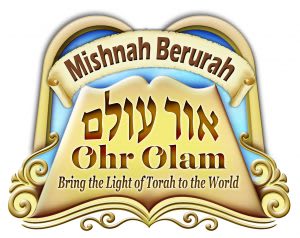Setting an Appliance to Operate in One’s Home on Shabbos

Question: Is it permitted to use a time clock to operate a home appliance such as a radio on Shabbos?
Discussion: Shulchan Aruch rules that it is permitted to operate a windmill late Friday afternoon even if it will continue to grind wheat on its own during Shabbos. This is permitted because no forbidden Shabbos Labor is being performed by a human being, only by a machine, and one is permitted to allow his machine to work for him on Shabbos. Rama, however, rules that l’chatchilah this should be avoided, since allowing a windmill – or any other noisy machine – to operate on Shabbos will cause zilzul Shabbos, degradation of the Shabbos. Rama is concerned that running a noisy machine on Jewish-owned premises on Shabbos casts suspicion on the owner of the premises: Is he desecrating the Shabbos?
Based on the above, contemporary poskim rule that one may not leave a radio, a tape recorder, a dishwasher,[1] a washing machine, a dryer or any other machine/appliance that generates noise running in one’s home, even if it was started before Shabbos, or was turned on by a Shabbos clock. This applies even if the machine emits a low level noise; as long as it can be heard by a neighbor or a passerby, it is forbidden.[2]
Still, Rama rules that it is permitted to have a noisy machine running in one’s home if it is clearly evident that the machine making the noise was set or turned on before Shabbos, such as a grandfather clock (whose hourly chime was clearly set up in advance). Similarly, when it is common knowledge that a particular appliance is usually activated in advance (such as an alarm clock), or by a thermostat (such as an air conditioner), it is permitted.[3] In these instances, no suspicion will be cast on the owner of the premises and it is, therefore, permitted to keep such machines operating on Shabbos, or to set a Shabbos clock to activate them on Shabbos.[4]
Zilzul Shabbos is also the reason why the poskim forbid a non-Jewish maid to operate a dishwasher or a vacuum cleaner inside a Jew’s home, since the noise that is heard from these machines might cause people to suspect the homeowner of desecrating the Shabbos.[5]
The fact of the matter is, however, that many yeshivos and camps allow non-Jews to operate dishwashers on their premises on Shabbos. While this practice seems to contradict the aforementioned ruling of Rama, it is nevertheless permitted since Rama himself rules that where a monetary loss would be incurred, one may be lenient and not concern himself with zilzul Shabbos. Since it would otherwise be impossible for the yeshiva or camp to have clean dishes, they view their situation as a case of “avoiding a loss” and they are lenient. Nevertheless, individuals in their private homes should not rely on this leniency.
The same Halachah applies in a case where laundry must be washed or dried immediately in order to prevent it from getting ruined; since it is for the purpose of avoiding a loss, it is permitted to put it into the machine, turn it on right before Shabbos, and allow it to operate on Shabbos.
[1] See Shemiras Shabbos k’Hilchasah 12:35, who forbids using a dishwasher with a time clock for other reasons as well..
[2] See Igros Moshe O.C. 4:70-6, Minchas Shelomo 2:20 and Minchas Yitzchak 1:107.
[3] See Shulchan Shelomo 252:13 and Orchos Shabbos 29:8. Concerning electric lights, there is no problem of zilzul Shabbos in any case, since there is no noise involved; see Shulchan Shelomo; Igros Moshe O.C. 4:60.
[4] Similarly, one is not required to shut off his telephone ringer, since a ringing phone does not cast suspicion on the homeowner. Nor is it required to disengage a phone which is attached to an answering machine or to a fax machine, as it is well known that these machines are set to operate before Shabbos; see Chazon Ovadyah, Shabbos, vol. 1, pg. 152.
[5] Rav M. Feinstein (quoted in The Sanctity of Shabbos, pg. 89); Minchas Shelomo 1:9; Eimek ha-Teshuvah 1:25. [See also Kol ha-Torah # 42, pg. 255, where Rav Y.Y. Neuwirth amends a previous ruling and writes that if the noise of the dishwasher is heard by others, it may be prohibited because of zilzul Shabbos.]
